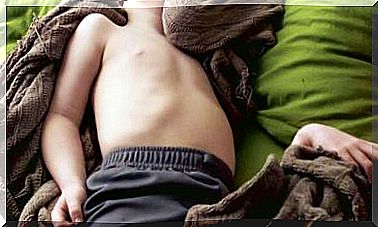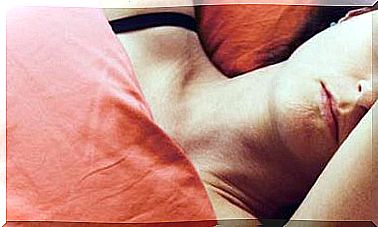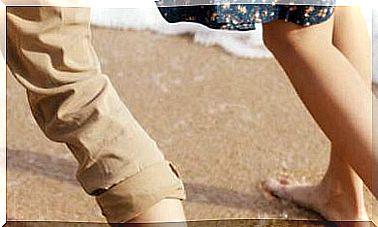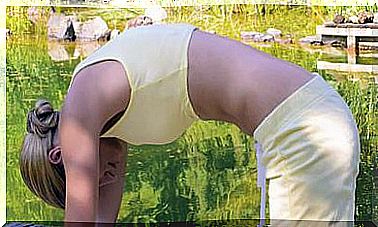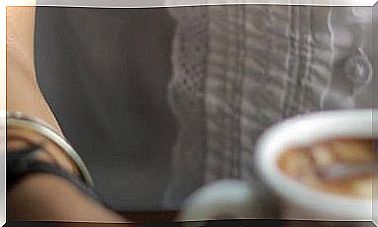How To Treat Vertigos According To Traditional Chinese Medicine
When one gets dizzy and vision is cloudy, Chinese medicine considers that the “internal wind” may be affecting the head. Find out how to appease it.

- Vertigo according to traditional Chinese medicine
- What types of vertigo are there and what can cause them?
- Is there a psychological vertigo?
- How to reduce vertigo?
We are in a skyscraper. Stuck in the elevator, we go up to the roof, where an important appointment awaits us. Suddenly the elevator stops: something is wrong.
Let us imagine that the skyscraper is our body, and the roof, the head, which governs and directs what happens in it; the elevator is the blood, and we, the nutrients that it elevates.
The elevator motor, which is the chi, drives the elevator through the meridians, the system that communicates the entire body.
In an ancient book of Chinese medicine it is said that “only the wind can reach the top of the mountain”.
The mountain is here the body, its top the head and the wind that rises the pathogenic factor capable of disturbing the tranquility of the head.
This is nourished by the jing chi (basal substance) of the kidney – the “sea of the marrow” -, and this in turn needs to be nourished by the earth chi of the spleen and stomach system, which it acquires through food.
But for the chi and blood to reach the head well, it is essential that the meridians are open and free of passage, and that is what the liver, an organ very sensitive to emotions, takes care of. Hence, intense and negative emotions cause dizziness.
Vertigo according to traditional Chinese medicine
In Chinese, vertigo is not one word but two: Xuan Yun. They are used together because they refer to symptoms that usually appear together.
Xuan could be translated as “blurred vision” and Yun generally means “dizziness”.
Seasickness is the sensation of being on a boat in rough seas: everything turns and you lose your balance. It can be accompanied by nausea, vomiting, sweating, tinnitus, hearing loss, and a pale complexion, and can lead to fainting.
These sensations, which do not usually include pain, occur in the head, which in Chinese medicine is considered the “sea of pure yang”, referring to pure and light chi, since only the pure can be raised.
The head is where more yang chi must go, and more accumulates, in order to keep the five orifices – hearing, sight, smell, taste and speech – in good working order.
The five orifices correspond to the five elements, and are the antennae through which the internal organs manifest their chi.
What types of vertigo are there and what can cause them?
For Western medicine, the causes of vertigo are various and almost all physical : hypertension or hypotension, hypoglycemia, anemia …
It largely coincides with Chinese medicine, although it has a more global focus.
1. Vertigo due to hypertension or hypotension
In Chinese medicine it is considered an ascent of liver yang (fire) due to a blockage of liver chi, which is usually due to an emotional disorder : disgust, anger, anger or frustration.
Another cause is the insufficiency of yin (water) of the kidney, which cannot control the yang of the liver, which causes its pathological rise.
2. Vertigo due to hypoglycemia, arteriosclerosis, anemia or muscle contracture
It is a picture of insufficient chi and blood, mainly in the spleen and stomach because they are not capable of transforming the immediate principles into a nutritive substance.
It can also be the consequence of a chronic disease that consumes chi and blood, preventing the nutrition of the muscular tissues and the elevation of pure yang chi towards the head.
3. Vertigo due to neck pain or Ménière’s syndrome
They are not exactly the same causes, but in the first case, depending on the cervical injury, it can be considered a bone wear which, for Chinese medicine, is a kidney jing deficiency.
It usually appears in older people, along with loss of vision and hearing, osteoporosis and osteoarthritis.
Ménière’s syndrome is a disorder of the inner ear, which, when filled with fluid, cannot fulfill its function of maintaining balance.
In Chinese medicine , ear disorders are mainly related to the kidney. In fact, the ear is considered the external orifice of this organ.
4. Vertigo due to anemia and arterial hypotension
The cause of anemia is very commonly a dysfunction of the spleen and stomach that usually produces tan or stagnant pathological water.
This adheres to the meridians preventing the flow of pure chi, which barely reaches the head and, consequently, the five orifices do not receive the pure yang chi and become cloudy.
In the case of anemia, the lack of chi and blood from the spleen / stomach is due to a lack of nutritive substance, but the result is the same: it does not have the strength or quantity to reach the head, so the five are not nourished holes.
Is there a psychological vertigo? The role of emotions
Emotions play a fundamental role in the imbalances of the organism. Some keys help keep you healthy:
Good humor. Negative emotional stimuli are very prone to blocking liver chi. It is convenient to maintain a good humor and a positive attitude, and do not forget that the head is managed by us by our will and perseverance.
Release ballast. You have to know how to digest, channel and not accumulate bad feelings, such as unsaid things, and admit what doesn’t make us happy, those little things that we don’t give too much importance to until “the glass is full”; that which we usually express by saying: “I am fed up”.
Lighten the mind. The head requires calm and lightness. In China, the opposite of well-being is “head heavy and feet light.” Cloudy, heavy chi is in the wrong place, causing discomfort.
If the elevator works we reach our destination. On the roof we contemplate the panorama, clear and serene, without having to hold onto the railing; because there is no wind to bother us.
How to reduce vertigo?
Acupuncture and herbal medicine help in these cases to release blockages, tone the insufficiency and eliminate the excess.
- Acupuncture works points near the head that remove the wind. The brain needs tranquility to be able to govern, and the wind, because of its lightness, easily disturbs. It is advisable to combine it with self-massage and exercise.
- Self-massage for dizziness. The easiest thing is to massage your ear, inside and out, a couple of times a day, for 2 or 3 minutes. It is also very relaxing to massage the head with a thick bristle brush or the fingers of the hand for 3 to 5 minutes: combing from the nape to the forehead, with the head tilted forward, starting from the central line and then edging ears; then it is repeated with the head upright and in the opposite direction, from the forehead to the nape, and ends by drumming the crown with the tips of the fingers.
- Stretches and exercises to mitigate vertigo: The exercise can consist of 20 minutes of stretching of the spine and the cervical part, mobilizing shoulders and neck. Exercises such as yoga, chikung, tai chi, walking or swimming help prevent, as well as good eating habits. Alcohol is discouraged because it activates liver fire and harms stomach chi.
